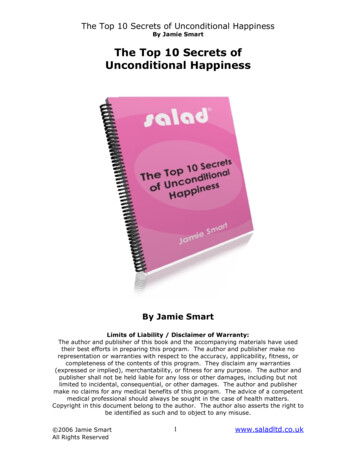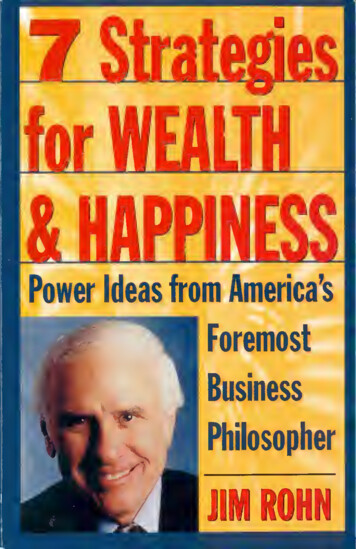
Transcription
7 StrategiesforWEALTH&HAPPINESS
7 StrategiesforWEALTH&HAPPINESSPower Ideas fromAmerica’s ForemostBusiness PhilosopherJim RohnTHREE RIVERS PRESS
Copyright 1985, 1996 by Jim RohnAll rights reserved. No part of this book may be reproduced or transmitted in anyform or by any means, electronic or mechanical, including photocopying, record ing, or by any information storage or retrieval sy stem, without written permissionfrom Random House, Inc., except for the inclusion of brief quotations in a review.Published by Three Rivers Press, New York, New York.Member of the Crown Publishing Group, a division of Random House, Inc.www.crownpublishing.comTHREE RIVERS PRESS and the Tugboat design are registered trademarks ofRandom House, Inc.Originally published by Prima Publishing, Roseville, California, in 1996.Printed in the United States of AmericaLibrary of Congress Cataloging-in-Publication Dataonn, james c. , .Seven strategies for wealth and happiness : power ideas from America s foremostbusiness philosopher / James E. Rohn.1 Finance, personal. I. Tide. H. Tide: 7 strategies for wealth and happiness.HG179.R625 1985650.1—dc2085-19443CIPISBN 0-7615-0616-013 12 11First Paperback Edition
ContentsAcknowledgmentsJim Rohn — In PersonAs one of today’s most respected speakers, Jim Rohnappears annually in front of dozens of audiences rangingfrom civic and church groups to sales organizations andFortune 500 companies.Introduction: The Day that Ihrned My Life Around .3Chapter 1: Five Key Words.7Strategy One: UNLEASH THE POWER OF GOALSChapter 2: Goals: What Motivates People . 21Chapter 3: Goals: How to Set Them . 31Chapter 4: Goals: Making Them Work for You . 39Strategy Two: SEEK KNOWLEDGEIf you, too, would like to have your organization experi ence Jim Rohn, write to: Jim Rohn International; 2835Exchange Boulevard, Suite 200; South Lake, TX 76092.(800)929-0434 FAX (817) 442-1390 www.jimrohn.comChapter 5: The Path to Wisdom. 51Strategy Three: LEARN HOW TO CHANGEChapter 6: The Miracle of Personal Development . 67“Jim Rohn’s presentation to our dealers and company peo ple was outstanding. Every single person attending wasStrategy Four: CONTROL YOUR FINANCESChapter 7: How to Achieve Financial Freedom . 89motivated to action.”Strategy Five: MASTER TIMEChapter 8: How to Be an Enlightened Time Manager . 109Standard Oil Ltd., AustraliaStrategy Six: SURROUND YOURSELF WITH WINNERSChapter 9: The Principle of Association . 129Strategy Seven: LEARN THE ART OF LIVING WELLChapter 10: Your Road to a Richer Lifestyle.139Chapter 11: The Day that Turns Your Life Around . 149
AcknowledgmentsI wish to extend my deep gratitude to the editorial staff at Primafor preparing my Manuscript and turning it into the book it istoday.
Introduction . . .The Day That TurnedMy Life AroundShortly after I turned twenty-five I met a man by the nameof Earl Shoaff. Little did I know how this encounter wouldchange my life . . .Up until then my life had been embarrassingly typical ofthe vast majority of people who lead gray lives of little achieve ment and even less happiness. I did have a wonderful start,growing up in the loving environment of a small farming com munity in southwestern Idaho, just a short walk from the shoresof the Snake River. When I left home I was filled with the hopeof carving for myself a good-sized chunk of the Americandream.However, things did not turn out quite as I’d expected.After graduating from high school I promptly went to college.But at the end of one year I decided I was smart enough, so Iquit. This turned out to be a major mistake — one of manymajor mistakes I would make during those early days. But Iwas impatient to work and to earn, figuring I wouldn’t haveany trouble getting a job, which turned out to be accurate.Getting a job wasn’t hard. (I was yet to understand the differ ence between merely making a living and making a life.)Shortly afterward, I got married. And like the typical hus band, I made my wife lots of promises about the wonderfulfuture which I knew was just around the corner. After all, I3
The Day That Turned My Life AroundThe Day Thai Turned My Life Aroundwas ambitious, I was very sincere about my desire to succeed,and I did work hard. Success was assured!After all, money was one of my biggest problems; I always hadfar too much month left over at the end of the money. (Haveyou ever been in that position?)Or so I thought. . .When I turned twenty-five, I had been working for sixyears, so I decided to take stock of my progress. I had a naggingsuspicion that things weren’t going quite right. My weeklypaycheck amounted to a grand total of fifty-seven dollars. Iwas far behind in my promises and even further behind withthe growing pile of bills strewn across our rickety kitchen table.By now I was a father saddled with ever-growing respon sibilities for my expanding family. But most of all I realizedthat gradually I had settled into quietly accepting my meagerlot.In a moment of honesty I began to see that rather thanmaking progress I was falling further behind financially witheach passing day. Something clearly had to change . . . butwhat?Maybe hard work alone doesn’t do it, I thought to myself.This, for me, was a shocking realization, raised as I was tobelieve that reward comes to those who earn their living by thesweat of their brow.But it was plain as day that although I was “sweatin’plenty,” I was on my way to ending up at age sixty like somany people I saw around me: broke and in need of assistance.This terrified me. I couldn’t face that kind of future. Notin this, the richest country in the world!Still, I had more questions than answers. What should Ido? How could I change the direction of my life?1 thought about going back to school. Only one year ofcollege doesn’t look good on a job application. But with afamily to look after, going back to school seemed impractical.Then I thought about starting a business. Now that was anexciting option! But, of course, I didn’t have the needed capital.One day, I lost ten dollars. It upset me so much that I feltphysically ill for two weeks — over a ten-dollar bill!One of my friends tried to cheer me up. “Look, Jim,” hesaid, “maybe some poor soul who needed it found it.”But believe me, that did not cheer me up. As far as I wasconcerned I was the person who needed to find ten dollars, notlose it. (I must admit that at that time in my life benevolencehad not yet seized me.)So that’s where I was at age twenty-five — behind on mydreams without a clue as to how to change my life for the better.Then one day good fortune came my way. Why did it appearat this point in my life? Why do good things happen when theydo? I really don't know. For me, this is part of the mystery oflife . . .Anyway, my good fortune came when I met a man — avery special person by the name of Earl Shoaff. I first saw himat a sales conference where he was conducting a seminar. Icannot tell you what he said that evening that captivated meso, but I can still remember thinking to myself that I wouldgive anything to be like him.At the end of the seminar it took all the courage I couldmuster to just walk up to him and introduce myself. But inspite of my fumbling, he must have seen my desire to succeed.He was kind and generous and eventually took a liking to me.A few months later he hired me to join his sales organization.For the next five years I learned many of life’s lessons fromMr. Shoaff. He treated me like a son, spending hours teachingme his personal philosophy, which I now call the Seven Strat egies for Wealth and Happiness.5
Chapter 1The Day Thai Turned My Life AroundThen one day, at age forty-nine, and without any warning,Mr. Shoaff died.After mourning the loss of my mentor, I took some timeto assess the impact he’d had on my life. I realized that the bestthing I’d received from him was not a job or even the oppor tunity to grow from a sales trainee to executive vice-presidentof his company. Rather, it was what I’d learned from the wis dom of his philosophy of life and his fundamentals for suc cessful living: how to be wealthy, how to be happy.During the next few years I incorporated his ideas into mylife . and I prospered. In fact, I made a great deal of money.But the most gratifying experience was sharing those ideaswith my business associates and employees. The response wasenthusiastic and the results immediate and measurable.Although I saw myself as primarily a businessman and notas an author or speaker, I felt drawn to the challenge of com municating to others, simply and directly, those ideas that makea difference in how a person’s life turns out.* As you read this book, imagine that you are shopping. Takeand use only those ideas that apply to you now. You certainlydon’t have to “buy into” everything any one person says. Butdo give yourself a chance. Read the following pages with anopen mind. If something makes sense to you, try it. If itdoesn’t, discard it.Remember, in whatever you do be a student, not merely afollower.6Five Key WordsAll the ideas in this book stem from a group of key words.To understand this book, therefore, and to receive maximumvalue from its contents, it is essential that we reach agreementon the meaning of each one. FUNDAMENTALS First, let’s take a look at the word “fundamentals.” I definefundamentals as those basic principles on which all accom plishment is built.Fundamentals form the beginning, the basis and the realityfrom which everything else flows.It’s a contradiction of terms to talk about new fundamentals.That’s like someone claiming to have manufactured new an tiques. One would be suspicious, right? No, fundamental prin ciples belong to the ages. They have been the same frombiblical times and will continue to remain so until the end oftime.Let's use the word “fundamentals” and apply it to the con cept of success. If you are looking for fundamental success,the kind of success that lasts, that is built on a solid foundation,then you shQuld avoid exotic answers. And believe me, there7
Five Key WordsFive Key Wordsare lots of exotic answers being offered these days, especiallyin southern California where I live.So in spite of rumors to the contrary, success is a simpleprocess. It doesn’t fall out of the sky. It is neither magical normysterious.DIFFERENCE TO THE OUTCOME? Whether the enterpriseis in the fine arts or in music, mathematics or physics, sportsor business, it’s those half-dozen fundamentals that count.The understanding and application of this simple principleis the first intelligent step toward accomplishing your dreamsand objectives.SUCCESS IS NO MORE THAN THE NATURAL CON SEQUENCE OF CONSISTENTLY APPLYING THE FUN DAMENTALS OF SUCCESS TO LIFE.The same is true of happiness and wealth. They, too, areno more than the natural consequence of consistently applyingthe fundamentals of happiness and wealth to life.The key is to stick to the fundamentals.* WEALTH *Mr. Shoaff, my mentor, said to me one day, “Jim, thereare always a half-dozen things that make eighty percent of theThe second key word to define is wealth. Wealth is a con troversial word because it brings to mind a wide variety ofimages and sometimes conflicting concepts. After all, each ofus views wealth from a different perspective. To one person,wealth may mean having enough money to do whatever he orshe wishes. To another, it may mean freedom from debt —freedom from the constant claim of obligation. To yet another,it may mean the opportunity to grow and to achieve.But out of this diversity comes creativity, and creativity canhelp each of us find unique ways to work for a life ofdifference.”A half-dozen things . . . what a key thought.Whether we are working to improve our health, wealth,personal achievement, or professional enterprise, the differ ence between triumphant success or bitter failure lies in thedegree of our commitment to seek out, study, and apply thoseabundance.To the majority who probably haven’t spent too much timethinking about the subject, wealth is simply symbolized by oneword: millionaire. Now there’s an exciting word! It rings ofsuccess, freedom, power, influence, pleasure, possibility, andbenevolence. Surely, being a millionaire is not a bad mentalhalf-dozen things.For example, for a farmer to reap a plentiful harvest in thefall, the half-dozen basics he must concentrate on are fairlyobvious: soil, seed, water, sunshine, nourishment, and care.Each component is of equal importance because only togetherdo they bring to fruition a successful harvest.Thus, a good question to ask before undertaking any newproject or setting new objectives is this: WHAT ARE THEHALF-DOZEN THINGS THAT WILL MAKE THE MOSTimage to hold!Likewise, the word wealth embodies more than economicconcepts. One can talk of the wealth of experience, the wealthof friendship, the wealth of love, the wealth of family, and the89A Half-Dozen Thingswealth of culture.However, for our purposes here, we shall focus on the kindof wealth that brings with it financial freedom — WEALTHTHAT COMES FROM THE CONVERSION OF EFFORTAND ENTERPRISE INTO CURRENCY AND EQUITY.
Five Key WordsFive Key WordsFor each of us, the specific amount required for us to feelwealthy will differ. Yet I’m sure that our basic dream is thesame: to be free of financial pressures, to have freedom ofchoice, and to enjoy the opportunity to create and to share.What does wealth mean to you? How much money will ittake for you to feel financially free? These are not idle ques tions. As you’ll soon see, the more clearly defined your con cepts about material wealth are, the more useful the ideas inthis book will be to you. HAPPINESS Happiness embraces the universal quest. It’s a joy that usually accompanies positive activity.Like wealth, however, it, too, has a variety of often con tradictory meanings. It’s both the joy of discovery and the joyof knowing. It often accompanies those who are fully awareof the colors, sounds, and harmony of life.And it’s the joy that comes to those who painstakinglydesign their lives and then live them with artistry.Happiness is the skill of reacting to the offerings of life byperception and by enjoyment.It’s achieved by both giving and receiving, reaping andbestowing. It’s being able to feast on harmony as well as food,on ideas as well as bread.Happiness comes to those who deliberately expand theirhorizons and experiences.It resides in the houses of those who have the ability tohandle disappointment without losing their sense of well being. It belongs to those who are in control of both theircircumstances and their emotions.10Happiness is also the freedom from the negative childrenof fear such as worry, low self-esteem, envy, greed, resent ment, prejudice, and hatred.Those who experience happiness often have a grasp on andan awareness of the tremendously positive power of life andlove.But happiness is more than a general feeling. It is also amethod of thinking that organizes feelings, activities, and life style. In other words, it’s a way of interpreting the world andits events.Happiness is having values in balance. It’s contentmentwith daily tasks, including those unpleasant chores from whichfew of us are free.Happiness is a life well-lived and filled with people ofsubstance. It’s a wide variety of experiences and memoriesthat become priceless forms of currency to spend and to invest.Happiness is activity with purpose. It’s love in practice. It’sboth a grasp of the obvious and an awe of the mysterious.Yet most of us think of happiness as something either lostin the past or a peak to be arrived at in some distant future (I’llbe happy as soon as . . .). Few understand that happiness canonly be experienced in the now. And, yes, like all good things,happiness is often elusive. But I promise you that it is notimpossible to capture.So how does one latch onto the bluebird of happiness?Curiously, by understanding and applying a concept which israrely associated with happiness . . . discipline. DISCIPLINE *If there is one critical ingredient for your successful questfor both wealth and happiness, it is discipline. And yet whenit comes to this concept, most people reject it as they conjure
Five Key WordsFive Key Wordsimages of everything from a tough drill sergeant to a strictschoolteacher waving a ruler.Yet I assure you that the acquisition of discipline holds thekey to your dreams and aspirations. Surprised? Then perhapswe should take a moment to define what is meant by discipline.conclude that no harm has been done. After all, it was just oneday. But add up these days to make a year and then add upthese years to make a lifetime and perhaps you can now seehow repeating today’s small failures can easily turn your lifeinto a major disaster.Discipline is the bridge between thought and accomplish ment . the glue that binds inspiration to achievement . . .the magic that turns financial necessity into the creation of anSuccess follows exactly the same pattern . in reverse. Ifyou plan to make ten calls and you go beyond your quota tofifteen, you’re ahead by five phone calls . . . today. Do thesame with your correspondence and your savings plan and soonyou’ll see the accumulated fruits of your diligence over a yearand, eventually, over a lifetime.inspired work of art.Discipline comes to those with the awareness that for a kiteto fly it must rise against the wind; that all good things areachieved by those who are willing to swim upstream; that drift ing aimlessly through life only leads to bitterness anddisappointment.Discipline is the foundation on which all success is built.Lack of discipline inevitably leads to failure.Yet, curiously, many do not associate lack of discipline withlack of success. Most people envision failure as one earthshattering event, such as a company going bankrupt or a housebeing repossessed.This, however, is not how failure happens. Failure is rarelythe result of some isolated event. Rather, it is a consequenceof a long list of accumulated little failures which happen as aresult of too little discipline.Failure occurs each time we fail to think . . . today, act. . . today, care, strive, climb, learn, or just keep going . . .today.If your goal requires that today you write ten letters andyou write only three, you are behind by seven letters. . .today.If you commit yourself to making five phone calls and youmake only one, you are behind by four phone calls . . today.If your financial plan requires that you save ten dollars andyou save none, you are behind ten dollars . . . today.The danger comes when we look at a day squandered and12Discipline is the master key. It unlocks the door to wealthand happiness, culture and sophistication, high self-esteem andhigh accomplishment, and the accompanying feelings of pride,satisfaction, and success.What does it take to acquire discipline?First, it requires that you develop an awareness of the im portance of discipline in your life. Start by asking yourself:“What do I want to accomplish in my life? What changes doI need to make in order to attain my goals?”Second, ask yourself honestly: “Am I willing to do what ittakes?” If you answer “yes,” then you need to make a long term commitment to maintain your discipline wisely, deliber ately, consistently.Finally, your commitment will be tested when circumstan ces emerge that could interfere with your commitment to yournew discipline — when you will have to perform, come rainor come shine.Certainly discipline will do much for you. But of evengreater importance is what it will do to you. It will make youfeel terrific about yourself.Even the smallest discipline can have an incredible effecton your attitude. And the good feeling you get — that surging13
Five Key WordsFive Key Wordsfeeling of self-worth which comes from starting a new disci pline is almost as good as the feeling which comes from theaccomplishment of the discipline.A new discipline immediately changes the direction of yourlife, like a ship turning in mid-ocean and heading toward anew destination.There are those who believe that discipline is unnatural —that just being is enough. They consider the need to accomplishto be a neurotic, man-made exercise. But the fact is that dis cipline cooperates with nature — where everything strives.How tall will a tree grow? It fights the powerful force ofgravity and keeps reaching toward sunlight to become as tallas it can be. True, this striving by a tree is not a conscious acttrees don’t have brains. But you and I have been given theability to consciously choose to strive and to become all thatwe can be.Discipline attracts opportunity. Exciting opportunities in variably come to those who have developed skills and whohave the ambition to act. And those who through discipline andcommitment set their sights high will grab on to opportunitiesthat forever remain unseen by more timid souls.Discipline is that unique process of intelligent thought andactivity that puts a lid on temper and a faucet on courtesy . .that develops positive action and controls negative thoughts. that encourages success and refuses to accept failure . . .that promotes health and curbs sickness.Anyone can begin the process of being disciplined. Youcan do it by degrees, one step at a time.The exciting news is . . .YOU CAN START . . . TODAY!Don’t say, “If I could, I would.” Say instead, “If I would,I could . If I will, I can!”14So start the new process and start small. And then learnto stick with your new commitment. Out of this seeminglyunimportant beginning you’ll learn how it feels to be disci plined. And from there, the sky’s the limit.Action vs. Self-DelusionIn recent years there have been a number of books whichpromote the idea that if one verbally affirms what one wantson a daily basis, success will magically emerge.I'm completely opposed to this mode of thinking. In myexperience, affirmations without the discipline to act uponthose things which are affirmed cause men and women to de lude themselves into thinking they’re making progress when,in fact, their daily activity leads them nowhere.Why do people say one thing and then act in direct contra diction to their affirmations?The man who dreams of wealth and yet walks daily towardcertain financial disaster and the woman who wishes for hap piness and yet thinks thoughts and commits acts that lead hertoward certain despair are both victims of the false hope whichaffirmations tend to manufacture. Why? Because words sootheand, like a narcotic, they lull us into a state of complacency.Remember this: TO MAKE PROGRESS YOU MUST AC TUALLY GET STARTED!So, to have a prosperous life, start a prosperity plan. Tobecome wealthy, develop a “wealthy” plan. Remember, youdon’t have to be wealthy to have a wealth plan; a person withoutany means can have a “becoming rich” plan.There are so many other types of plans which you cancreate: If you are ill, start a health plan. Do you feel tired all the time? Then start an energy plan.15
Five Key WordsFive Key Words Feel a bit under-educated? That’s right! Start an education plan. You say you can’t? Then start anI canplan.Then, make this the month of new beginnings . . . and thenthe year of new beginnings. By the time you’ve completedyour first year you’ll never again be claimed by the past —past habits, past influences, past regrets, past failures. As theBible says, you’ll now be ready to “fly with the eagles.”ANYONE CAN!Even a bad person can start reading good books. The keyis to take a step . . . today. Whatever the project, start TODAYStart clearing out a drawer of your newly organized desk. . . today.Start setting your first goal . . . today.Start listening to motivational cassettes . . . today.Start a sensible weight-reduction plan . . . today.Start calling on one tough customer a day . . . today.Start putting money in your new “investment for fortune”account . . . today.Write a long-overdue letter. . . today.What the heck! Get some momentum going on your newcommitment for the good life. See how many activities youcan pile on your new commitment to the better life. Go all out!Break away from the downward pull of gravity. Start yourthrusters going. Prove to yourself that the waiting is over andthe hoping is past — that faith and action have now takencharge.It’s a new day, a new beginning for your new life. Withdiscipline you will be amazed at how much progress you’ll beable to make. What have you got to lose except the guilt andfear of the past?Now, I offer you the next challenge: Make this — the firstday of your new beginning — a part of the week of newbeginnings.Go ahead, see how many things you can start and continue* SUCCESS Success is the fifth key word. And like each of the conceptsalready discussed, it has multiple layers of meaning.Success is also an elusive notion, a paradox. After all, itis both a journey and a destination, isn’t it?It’s the steady, measured progress toward a goal and theachievement of a goal.Success is both an accomplishment and a wisdom thatcomes to those who understand the potential power of life.It’s an awareness of value and the cultivation of worthwhilevalues through discipline.It’s both material and spiritual, practical and mystical.Success is a process of turning away from something inorder to turn toward something better — from lethargy to ex ercise, from candy to fruit, from spending to investing.Success is responding to an invitation to change, to grow,to develop, and to become — an invitation to move up to abetter place in order to gain a better vantage point.But most of all, success is making your life what you wantit to be. Considering all the possibilities, considering all theexamples of others whose lives you admire, what do you wantfrom your life? That is the big question!Remember, success is not a set of standards from our cul ture but rather a collection of personal values clearly definedand ultimately achieved.in this, your week of new beginnings.1617
Five Key WordsSTRATEGY ONEMaking your life what you want it to be for you — that issuccess. But how does one go about doing that? That’s preciselywhat this book is about.UnleashthePowerofGoals
Chapter 2Goals:What Motivates PeopleOne morning, two weeks after I started working for him,Mr. Shoaff and 1 were having breakfast together. Just as I wasabout to finish my eggs, he said, “Jim, let’s take a look at yourlist of goals so that we can review and discuss them. Maybethat’s the best way I can help you right now.”“But I don’t have a list with me,” I replied.“Well, is it out in your car or at home somewhere?”“No, sir, I don’t have a list anywhere.”Mr. Shoaff sighed. “Well, young man, looks like this iswhere we’d better start.”Then, looking directly into my eyes, he said, “If you don’thave a list of your goals, I can guess your bank balance withina few hundred dollars." He guessed right. And that really gotmy attention.I was astonished. “You mean that if I had a list of my goalsmy bank balance would change?” I asked.“Drastically,” he said.That day I became a student of the art and science of goal setting.Of all the things I’ve learned since those early days, goal setting has had the most profound effect on my life. Everyaspect of my existence — my accomplishments, my income,21
Goals: What Motivates PeopleGoals: What Motivates Peoplemy bank balance, my lifestyle, my donations, even my per sonality — changed for the better.I am so convinced that mastering goal-setting can have aprofound effect on your life that I’m going to devote a greatdeal of space to discussing this often misunderstood process.In fact, I urge you to do more than just read the followingchapters. Study them. And if you have a notebook handy, somuch the better. THE POWER OF DREAMS Each and every one of our lives is affected by several fac tors. One of those factors is our environment — where we live,what kind of parents we have, which schools we attend, whoour friends are; each plays a role.We are also shaped by the events in our lives. A war, forexample, can wrench all certainty from our psyche.Knowledge, or the lack of it, will also shape our lives. Socan the results of our efforts — we can either be elated ordeflated based on our ability to achieve those desired results.But of all the factors that affect our lives, none has as muchpotential power for doing good as our ability to dream.Dreams are a projection of the life we wish to lead. There fore, when we allow them to “pull” us, our dreams unleash acreative force that can overpower all obstacles hindering theattainment of our objectives.To unharness this power, however, dreams must be welldefined. A fuzzy future has little pull power. To really achieveyour dreams, to really have your future plans pull you, yourdreams must be vivid.Now, there are two ways to face the future: You can facethe future with anticipation or you can face it with apprehen 22sion. Guess how many people face the future with apprehen sion? Right, most do.You’ve seen the type — always worrying, worrying, wor rying. Why are these individuals so apprehensive? Becausethey haven’t spent time designing their futures. In many cases,they live their lives by trying to win the approval of someoneelse. In the process, they end up “buying into” someone else’sview of how life should be lived. No wonder they are worried— always looking around, seeking approval for everything theydo.On the other hand, those who face the future with antici pation have planned a future worth getting excited about. Theycan “see” the future in their mind’s eye, and it looks terrific.The future captures their imagination, and it exerts an enor mous pull on them. THE POWER OF WELL-DEFINED GOALS Dreams are wonderful, but they are not enough. It’s notsufficient to have a brilliant painting of the desired result. Toerect a magnificent structure one must also have a step-by-stepblueprint of how to lay the foundation, support the structure,and so on. And for that we
ence Jim Rohn, write to: Jim Rohn International; 2835 Exchange Boulevard, Suite 200; South Lake, TX 76092. (800)929-0434 . FAX (817) 442-1390 www.jimrohn.com “Jim Rohn’s presentation to our dealers and company peo ple was outstanding. Every single Chapterperson attending was


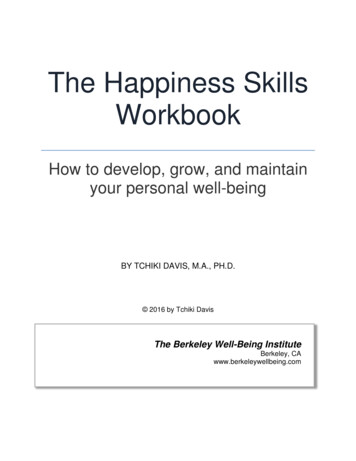
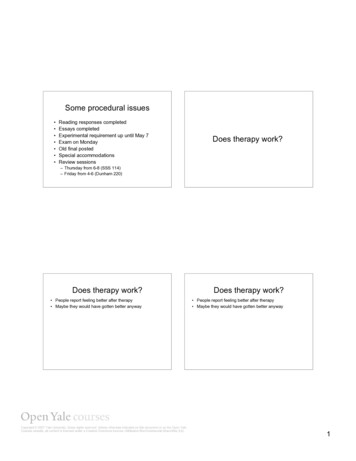




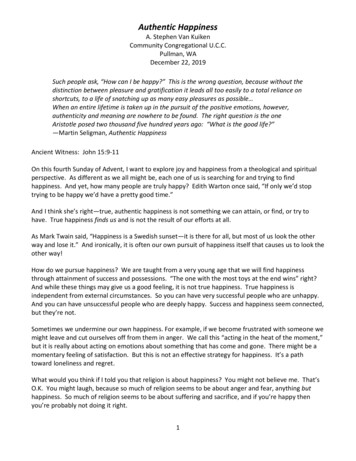
![INDEX [ actmindfully .au]](/img/14/2016-complete-worksheets-for-russ-harris-act-books.jpg)
![INDEX [thehappinesstrap ]](/img/14/complete-worksheets-2014.jpg)
